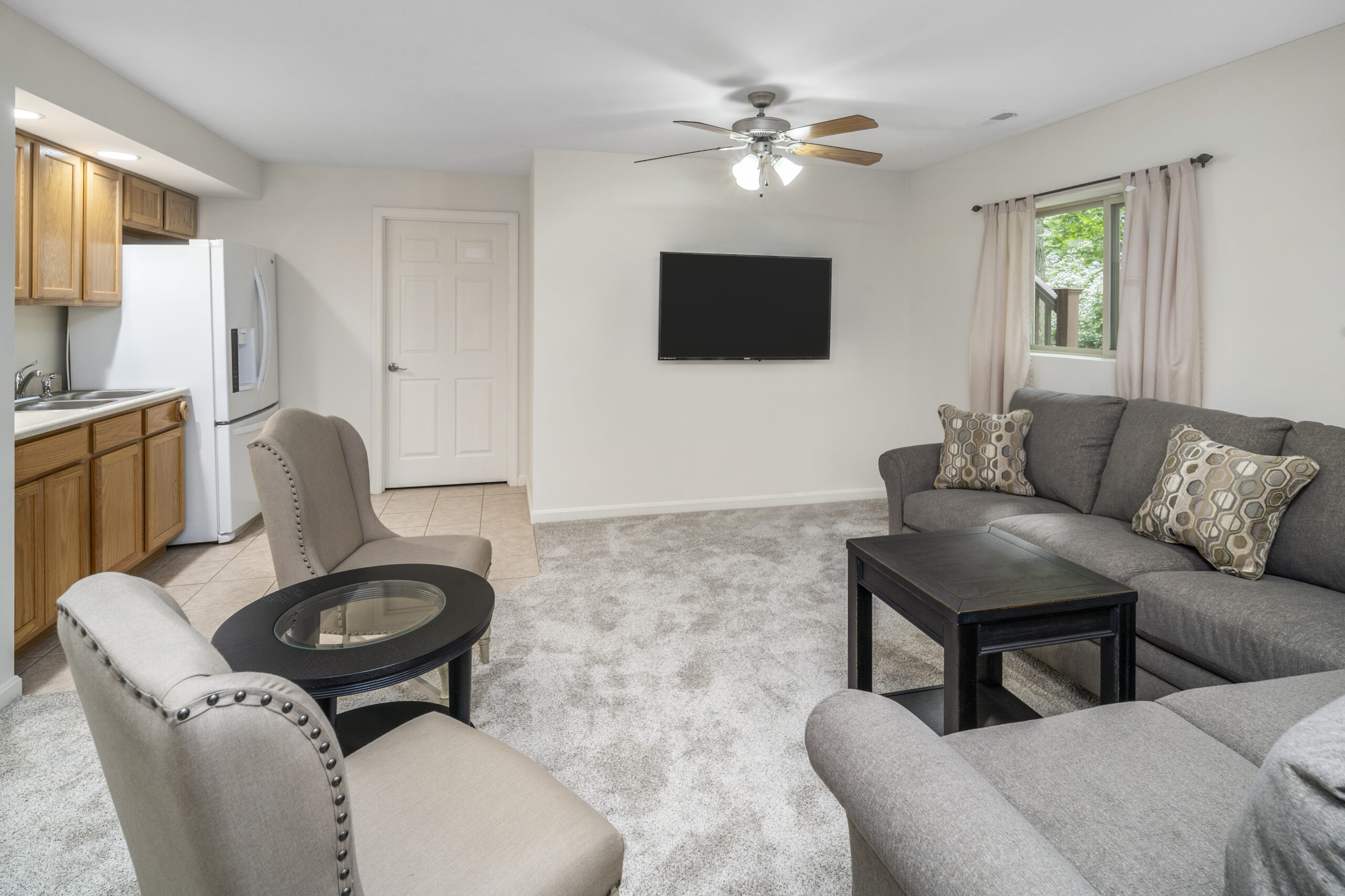
Our Dual Diagnosis Treatment Centers Ohio
- What is a a Co-occurring Disorder?
- Common Symptoms to look for in a Dual Diagnosis
- What are common types of Co-occurring Mental Health Disorders?
- Our Dual Diagnosis treatment centers Ohio understands the correlation between mental health and addiction
- Hotel California by the Sea’s specialized Dual Diagnosis Treatment Centers in Ohio
- Our Dual Diagnosis Treatment Centers Ohio Holistic Approach
- Get Help at our Dual Diagnosis Treatment Centers Ohio
- Request a Call
At Hotel California by the Sea, our specialized dual diagnosis treatment centers in Ohio aim to seek out the underlying root causes of addiction. Our treatments target the co-occurring mental health conditions that may be present. Our unique co-occurring disorder treatment center in Ohio supports the physical, emotional and psychological treatment of addiction.
Sometimes the effects of drugs and alcohol on someone’s brain are temporary, causing only minor mental health disturbances. In other cases, co-occurring disorders can be the root cause of addiction. In order for a substance abuse treatment plan to be successful, mental health conditions must be taken into consideration.
OR:
Request a Call

Treating substance and alcohol addiction alone requires a comprehensive approach by an extensively trained treatment team. When other mental health conditions present themselves in a substance use disorder, the course of recovery can become even more complex. Patients at our dual diagnosis treatment center in Ohio receive the appropriate tools and resources to treat their addiction. Through the usage of evidence-based therapies, patients will be able to tackle any psychological issues related to their addiction struggles.
What is a a Co-occurring Disorder?
A co-occurring mental health disorder, is when a mental illness condition is present alongside a substance use disorder. This is also known as having a dual diagnosis. Some examples of this may include having an alcohol use disorder (AUD) and post-traumatic stress disorder (PTSD). Another example of a dual diagnosis is a prescription drug use disorder paired with major depressive disorder.
In some cases, clients may experience multiple co-occurring mental health conditions such as AUD, anxiety, and PTSD. Though these conditions coincide with one another, it does not always mean they are a catalyst for each other’s disorders.
Sometimes mental health illnesses arise in response to the chemical changes that occur in the brain. This is a result of long-term abuse of substances. In some cases, individuals may not even be aware of a co-occurring disorder. After removing all mind-altering substances from their life, they realize they are still struggling.
Without the proper attention and treatment, these conditions can lead to the development of co-occurring mental health issues. Untreated, they will eventually feed off of one another and exacerbate symptoms of both the SUD and mental health condition. Because these conditions occur simultaneously, they should also be treated concurrently in order to achieve successful addiction recovery.
Common Symptoms to look for in a Dual Diagnosis
Co-occurring mental health disorders produce a variety of signs and symptoms. This also depends on which mental illness is present and if there is more than one. Substance use disorders in conjunction with a mental illness can change brain cognition causing them to behave out of character.
Sometimes people dealing with mental health conditions turn to substances as a form of self-medication. Drugs or alcohol is used as a way to manage and cope with any distressing emotions as a result of their mental health disorder.
Common symptoms of co-occurring mental health conditions:
- Social withdrawal from friends and family
- Development of a strained relationship with loved ones
- Lack of appetite and poor nutrition
- Lack of sleep, insomnia and lethargy
- Unable to concentrate and focus
- Experiencing delusions
- Difficulty participating or functioning in daily life activities
- Depression and anxiety
- Excessive usage of drugs and alcohol as a way to cope

What are common types of Co-occurring Mental Health Disorders?
Having a mental health disorder on top of a drug addiction can have double the amount of compounding effects. Our certified clinical psychiatrists will work with each patient to help them identify and address any mental health disorders. A comprehensive treatment plan will be created to best suit his or her personal needs. Some of the most commonly seen mental health conditions include depression, anxiety, OCD and ADHD.
Borderline Personality Disorder
Individuals who suffer from borderline personality disorder (BPD) usually struggle with an intense fear of abandonment and rejection. These emotions often stem from childhood trauma.
BPD is a mental illness affecting a person’s ability to regulate and control their emotions. It can be difficult to treat and diagnose because of the more subtle personality traits that appear. Traits can also pass as characteristics of other mental health conditions.
Some other signs of BPD can include substance use disorders, self-harm and suicidal ideation. People can also experience destructive behaviors, chronic feelings of hopelessness and more. BPD is most often associated and diagnosed in teens and young adults.
Major Depressive Disorder
Major depressive disorder is a mood disorder that causes consistent feelings of sadness, hopelessness and sometimes thoughts of suicidal ideation and self-harm. It is also often referred to as depression. In severe cases, individuals suffering from depression can have trouble executing normal daily activities.
Depression can develop at any age and can also be caused by personal and family history of trauma and stress. For individuals who have depression, turning to drugs and alcohol is used as a form of self-medication. This coping mechanism is used to better manage distressing feelings.
Obsessive Compulsive Disorder (OCD)
Obsessive-compulsive disorder (OCD), is when a person has uncontrolled thoughts and behaviors that need to be repeated over and over again. Some of the symptoms of this mental health condition include obsession with germs or cleanliness, intrusive thoughts, social isolation and superstitious behavior and thoughts. It is still unknown what exactly causes the development of OCD. Some factors that can contribute to this mental condition are genetics and biological makeup, environmental factors, trauma and unhealthy social relationships.
Generalized Anxiety Disorder (GAD)
Generalized anxiety disorder is defined as excessive, uncontrolled and ongoing feelings of worry or fear. Those who struggle with anxiety disorders are at significant risk of developing a substance use disorder. This is a result of self-medicating behaviors to control these distressing feelings.
Some symptoms of an anxiety disorder include restlessness, panic attacks, stress and increased heart rate. Anxiety is also often associated with other mental health illnesses. Conditions often include panic disorder, social anxiety disorder and various types of phobias.
Post-traumatic Stress Discorder (PTSD)
Post-traumatic stress disorder leaves individuals highly vulnerable to developing substance use disorders. This is due to a person’s inability to cope with stress and the numbing effects of drugs and alcohol. PTSD is a mental disorder that can develop when a person has experienced a traumatic and distressing event.
PTSD can result from childhood trauma, death of a loved one, a car accident and even acts of violence and war. This can have lasting effects on the brain and even chemically changes how a person thinks and behaves. In this situation, our co-occurring disorder treatment center in Ohio works to find the root causes of mental health disorders. These mental health issues commonly lead to the abuse of harmful substances.
Eating Disorders
Eating disorders are a condition in which persistent physical and psychological eating behaviors negatively impact a person’s health and well-being. Eating disorders can come in many different forms with the most common being bulimia nervosa, anorexia nervosa and binge-eating disorder.
Bulimia occurs when a person engages in binge eating followed by purging. This is due to feelings of guilt and lack of self-control over their eating habits. Anorexia occurs when a person extremely limits their caloric food intake due to a distorted image of their body image. Binge eating disorder occurs when a person regularly overeats even when they are uncomfortably full.
Bipolar Disorder
Bipolar disorder is classified by intense mood swings ranging from serious highs and lows. Individuals can experience the highs of mania and then the lows of depression. Many people suffering from bipolar disorder use drugs in an attempt to manage and stabilize their extreme emotional mood swings. Substances only exacerbate their symptoms and lead to substance use disorder and addiction.
Our Dual Diagnosis treatment centers Ohio understands the correlation between mental health and addiction
Research has found that about half of individuals who suffer from a substance use disorder also experience a co-occurring disorder. These mental health conditions can include anxiety, depression, OCD, PTSD and various types of eating disorders. Those who suffer from mental health disorders can also turn to substance use as a form of self-medication. It is used as a way to help alleviate the emotional symptoms of their mental illness.
Those who suffer from a substance use disorder often develop a co-occurring disorder. This is a result of altered brain functions from substance abuse. Though both of these conditions can occur alongside each other, they are not always a catalyst for each other’s conditions. They can simply present themselves simultaneously.
Rigorous dual-diagnosis treatment centers in Ohio focus on helping clients manage mental health conditions. The program utilizes a combination of medication treatments and therapeutic methods to address co-occurring issues.
Hotel California by the Sea’s specialized Dual Diagnosis Treatment Centers in Ohio
At our dual diagnosis treatment centers in Ohio, we focus on providing the latest evidence-proven methods. Our unique methods help our clients understand and address their mental health conditions. We help them decipher the possible contributors that may have led to the development of any of their mental health conditions. Together with the guidance of rehab specialists, patients will decide the appropriate approach to treating their mental health illness.
Addiction is not a disease specific to any class, ethnicity or gender. In fact, addiction is one of the most non-discriminatory diseases.
When a mental illness condition is added on top of an addiction, a patient’s diagnosis becomes much more complicated. It becomes more difficult to treat. Because of this, we believe in treating each patient holistically by addressing both the physical and psychological aspects of his or her addiction.
At our co-occurring disorder treatment center in Ohio, we offer a multitude of clinically proven treatments. Our program consists of behavioral therapies and medication treatments to address every aspect of a patient’s addiction.
Cognitive Behavioral Therapy (CBT)
Cognitive behavioral therapy (CBT) is one of the most commonly utilized types of behavioral therapy. It is used to treat those with substance use disorders and co-occurring disorders. CBT focuses on changing a patient’s negative thoughts and behaviors and reprocessing them into positive affirming feelings. CBT teaches effective coping skills to help patients manage daily life situations that can be triggering.
Dialectical Behavioral Therapy (DBT)
Dialectical behavioral therapy (DBT) is a subtype of CBT. DBT focuses on helping patients learn to recognize, accept and then change their feelings toward their addiction. DBT helps patients develop emotional regulation, mindfulness, interpersonal effectiveness and distress tolerance skills. All of these elements can be applied to stressful situations related to their addiction and mental illness.
Integrative Group Therapy
Group therapy can be very beneficial for those who are suffering from a mental illness and substance use disorders. Addiction and mental illness can be a lonely space.
Group therapy sessions with other like-minded peers offer community support. This is especially helpful for those who are suffering from co-occurring mental health conditions and addiction. Individuals are able to develop meaningful relationships, receive support and develop a level of motivation throughout their recovery journey.
Psychotropic Medication
For some patients, carefully managed medication treatments are necessary in order to help keep the patients comfortable and safe, during their recovery journey. Carefully managed medications can be highly beneficial to the recovery progress of a patient. This is always managed under the care of certified psychiatrists and medical physicians. Patients along with their clinical team will decide on the best course of treatment, which can include forms of medication management.
The most commonly utilized medications fall into five main categories:
- Antipsychotics – used to help patients with psychotic disorders
- Antidepressants – used to help patients who are experiencing severe depressive feelings and emotions
- Antianxiety – used to help patients dealing with chronic or acute anxiety
- Stimulants – used to help patients regulate their ADHD and disorganized thought process
- Mood stabilizers – used to help treat patients suffering from bipolar disorder or borderline personality disorder

Our Dual Diagnosis Treatment Centers Ohio Holistic Approach
Substance addiction and co-occurring disorders can sometimes present with overlapping symptoms and therefore should be treated simultaneously. This way, clinical rehab professionals can accurately identify and diagnose each disorder and utilize the most effective targeted treatments. At Hotel California by the Sea, our dual diagnosis treatment center in Ohio provides high-quality programming. Treatment begins with a complete biopsychosocial assessment of the patient to make a proper diagnosis of their mental health conditions.
Vital information gathered by the clinical team will help identify any mental health disorders separate from addiction symptoms. They can then formulate a comprehensive treatment plan. Treatment options vary from individual to group therapies, marriage and family counseling and medication based treatments if necessary.
The co-occurring disorder treatment center in Ohio specializes in treating mental health disorders. We offer targeted programs for women, men and young adults struggling with addiction. Each group of patients has unique obstacles and needs when it comes to substance abuse and mental health disorder treatments. Offering individualized care plans through our inpatient and outpatient treatment facilities, patients will have a greater chance of a successful recovery.
Get Help at our Dual Diagnosis Treatment Centers Ohio
Having a mental health disorder in addition to a substance use disorder can be difficult to maintain. Overlapping mental health symptoms that can trigger addiction symptoms can make it more difficult to diagnose and difficult to manage alone. At Hotel California by the Sea’s dual diagnosis treatment centers Ohio, we have a team of expert rehab clinicians. Our clinical team is trained to identify, understand and treat various mental health conditions and substance use disorders.
Our specialized co-occurring disorder treatment center in Ohio offers unique treatment therapies that target these conditions. Call the experienced admissions team at our dual diagnosis treatment centers in Ohio. Learn more about how you can alleviate your physical and emotional pain through our rigorous co-occurring disorders treatment program.
Request a Call
The road to recovery is full of uncertainty, leave your worries behind…
Our compassionate staff will answer all of your questions without any pressure. Learn about our evidence-based drug addiction treatment and rehab, the ease of entering our program, and the benefits of getting help from a reputable addiction treatment facility like Hotel California by the Sea.
Every member of our admissions team has been where you are today – be sure to ask them about their journey!






